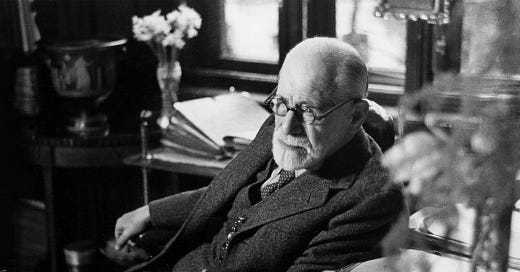From a certain point of view it's almost irrelevant who the protagonist of a novel is. What one wants as a writer when planning a piece of fiction is to find a position from which one can see. So what a novel does, for the writer, is to bring together the numerous notions that have been cooking in his unconscious for the previous weeks, months or even years. A book then will be a kind of imaginative diary, an account of what the writer wasn't quite aware of but would come to know as he proceeds.
When I wrote Something to Tell You, I chose to make the protagonist a psychoanalyst because writers and Freudians, though they may have presented themselves as rivals, were, during the twentieth century at least, interested in the same thing.
Modernism in literature and the discoverers of psychoanalysis were looking in similar places. So the three most significant works of the early twentieth century - which are Freud's Interpretation of Dreams, Proust's The Remembrance of Things Past, and Joyces Ulysses- are all concerned with sleep, dreams, childhood, sexuality and jokes. They are, in other words, fascinated by all of that which cannot be apprehended and examined by consciousness. The mystery of the human subject, and its elusiveness, are common to both psychoanalysis and literature.
Keep reading with a 7-day free trial
Subscribe to THE KUREISHI CHRONICLES to keep reading this post and get 7 days of free access to the full post archives.




